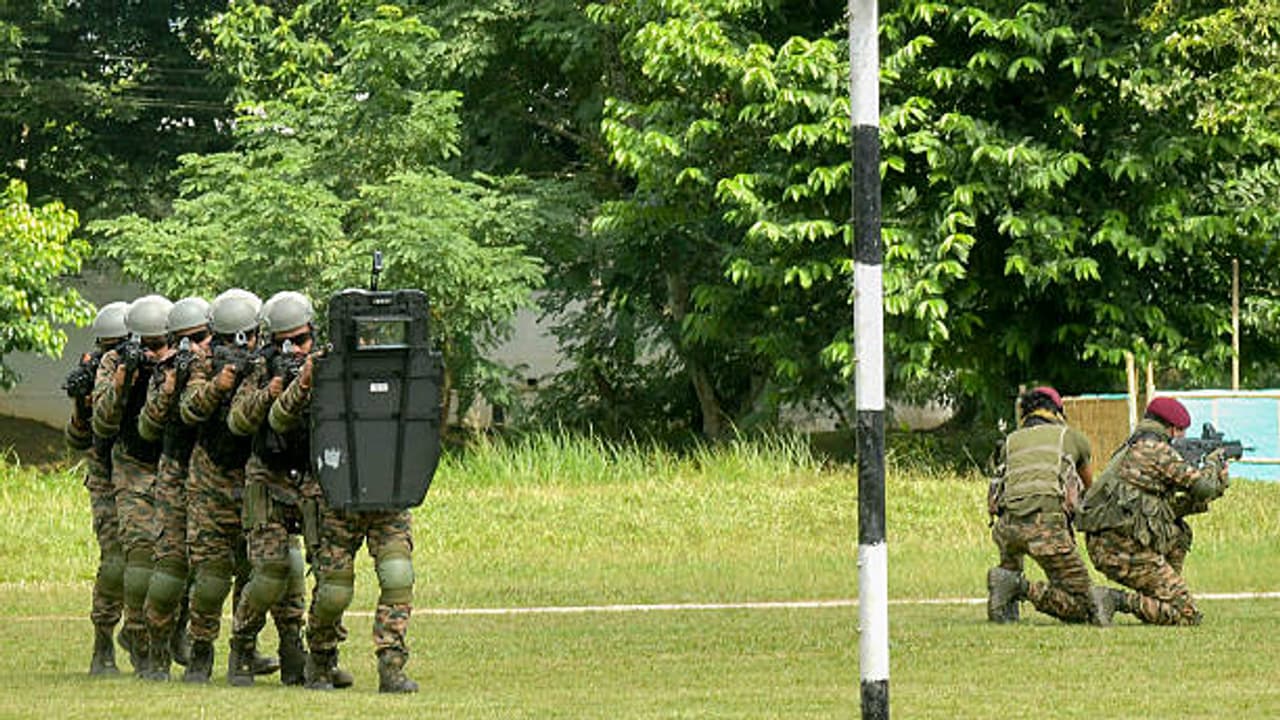Reports from the Ministry of Defence (MoD) and Parliamentary committees highlight shortages, rigidities in career progression and the need to adapt training to new technologies.
India’s Armed Forces are at an inflexion point. While modernisation of platforms and doctrines is advancing, the equally vital human dimension—manpower, career structures and professional development—faces challenges that require urgent yet carefully considered reforms. Reports from the Ministry of Defence (MoD) and Parliamentary committees highlight shortages, rigidities in career progression and the need to adapt training to new technologies. Addressing these gaps will not only improve operational readiness but also make military service an attractive career choice for India’s youth.
The Manpower Question
As of late 2024, the Army’s strength stood at about 11.05 lakh against an authorised 11.98 lakh—a shortfall of nearly 92,500 soldiers. The officer cadre shows an even sharper deficit, with around 42,000 officers against a requirement of more than 50,000, amounting to a shortfall of nearly 17 per cent. These gaps have been accentuated by the COVID-19 pause in recruitment, routine retirements and continuing operational deployments along the Line of Control and the Line of Actual Control. While the numbers appear daunting, they also provide an opportunity to re-examine the pathways through which India recruits, retains and motivates its military personnel.
Career Progression and Youth Aspirations
One of the biggest questions facing young Indians is whether the defence service offers a fulfilling career trajectory as compared to opportunities in the civvy street. The Modified Assured Career Progression (MACP) scheme provides financial upgradation at fixed intervals but does not address the deeper issue of substantive promotions and command responsibilities. For many officers, this creates a sense of stagnation. Critics argue that time-bound promotions risk rewarding mediocrity, while merit-based systems have at times been viewed as opaque.
For a generation that places high value on growth, diversity of experience and merit recognition, the Armed Forces need to project clearer avenues of opportunity. Well-defined technical streams, lateral entry options for specialists, and educational partnerships with leading institutions can help. The Army’s collaborations with Gati Shakti Vishwavidyalaya and IIT Guwahati already allow soldiers and officers to acquire advanced skills in management, leadership and defence technology. Scaling up such initiatives would send a strong signal that a career in uniform is also a career in constant learning and advancement.
Recognising Service Conditions
Equally important is the recognition of the conditions under which soldiers serve. Extended postings in extreme cold, high-altitude terrain, and counter-insurgency grids impose unique pressures on personnel and their families. Ensuring parity in allowances across services, strengthening family welfare schemes, and more visibly acknowledging the hardships of military life would go a long way in reinforcing morale. Society too must play its part in better understanding these service conditions, so that military service is appreciated not only for its symbolic value but also for the daily realities it entails.
Building Technological Competence
India’s defence modernisation strategy emphasises cyber warfare, artificial intelligence, drones, space assets and advanced communications. Preparing the Armed Forces for this environment requires more than new equipment; it requires a workforce trained to operate at the frontiers of technology. Parliamentary panels have repeatedly urged higher allocations for training and modernisation, warning that gaps in instructor capacity and curriculum design could slow progress.
Skill India programmes and resettlement training for veterans mark encouraging beginnings, but mapping military skillsets more systematically to civilian industry standards is essential. International experience offers useful lessons. The United States military has dedicated cyber pipelines and strong transition programmes like SkillBridge. The United Kingdom offers fast-track cyber entry and blended learning opportunities, while Israel’s bootcamp-style programmes quickly convert combat veterans into tech professionals. These models demonstrate how a military career can become synonymous with cutting-edge expertise, making it attractive both within and beyond the armed forces.
Work–Life Balance and Support
Modern military service also demands greater attention to the quality of life. Better housing, education options for children, accessible healthcare, structured mental health support and longer leave cycles are not perks but essentials in retaining talent. For younger generations weighing career choices, the assurance that family life will not be compromised is as significant as pay and promotion. By embedding work–life balance into its reform agenda, the Armed Forces can show that service to the nation need not come at the expense of personal well-being.
Towards Transformational Reform
India has begun taking steps in this direction. Preferential recruitment of ex-Agniveers into the CAPFs, skill-building tie-ups with universities and industry, and pilot programmes in advanced training all indicate a willingness to adapt. Yet piecemeal fixes will not suffice. Parliamentary committees and think-tank studies converge on the need for structural reforms: flexible service models, defence technology hubs, incubation centres for veterans, and systematic entrepreneurship pathways. Such measures would not only address manpower gaps but also embed the Armed Forces firmly within India’s broader skills and innovation ecosystem.
A Profession Worth Aspiring To
Military service has always been synonymous with honour, duty and sacrifice. The challenge now is to ensure it also offers opportunity, growth and recognition. If India’s youth see defence careers as dynamic and future-ready—providing skills valued both within the military and in wider society—the manpower shortages of today can be turned into a window of renewal.
The path forward lies in blending tradition with transformation: preserving the Armed Forces’ ethos while embracing reforms that reflect contemporary aspirations. In doing so, India can ensure that military service remains not only a national calling but also a profession worth aspiring to.
(Ashu Maan is an Associate Fellow at the Centre for Land Warfare Studies. He is currently pursuing his PhD from Amity University, Noida, in Defence and Strategic Studies.)
Disclaimer: The opinions expressed are solely those of the author and do not reflect the views or stance of the organization. The organization assumes no responsibility for the content shared.
